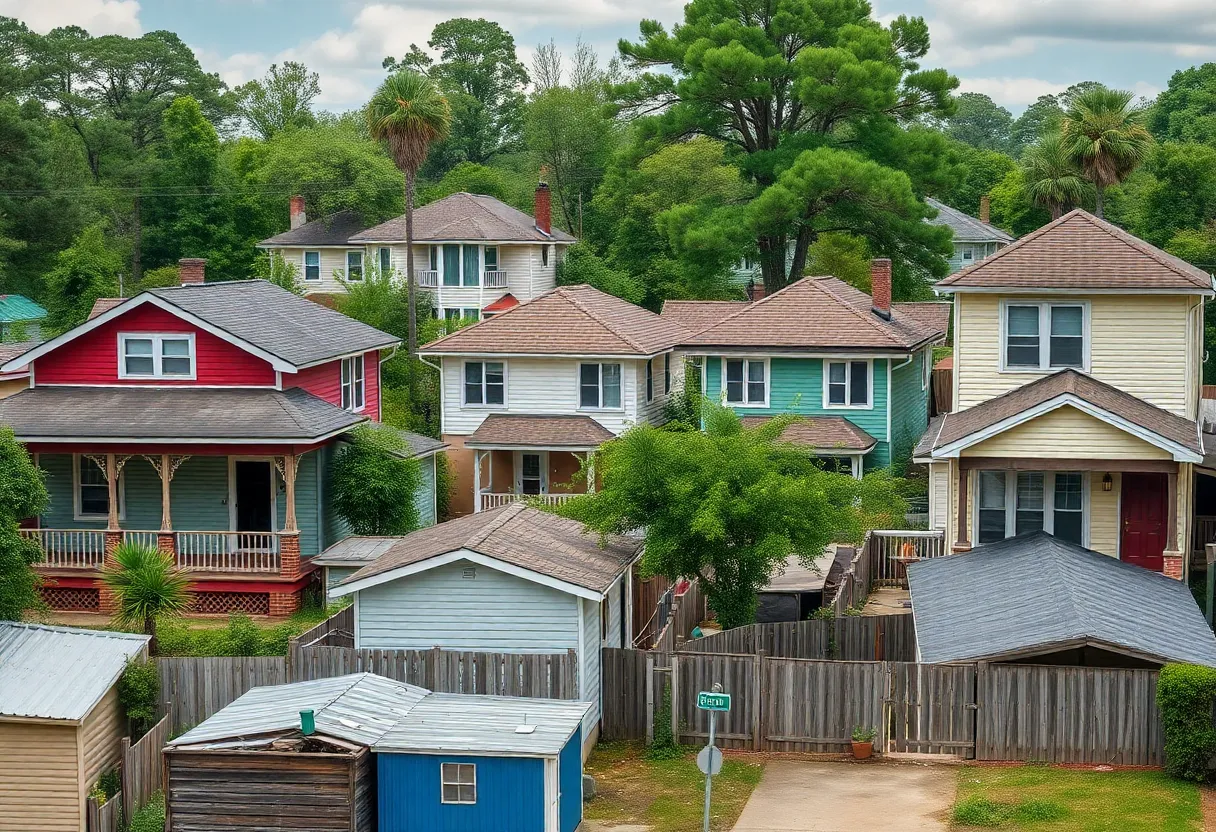News Summary
In a significant legislative move, Georgia has passed House Bill 399, mandating out-of-state landlords to employ local brokers. This law aims to address housing issues by improving tenant-landlord communication and enhancing property management standards, especially as local communities face challenges from absentee corporate owners. With concerns growing over the state of housing, this legislation is seen as a proactive step to improve the living conditions of residents across Georgia.
Local Broker Requirement for Out-of-State Landlords Passed in Georgia
In the vibrant city of Georgia, recent legislation has taken a significant turn to address the challenges posed by out-of-state landlords. With concerns mounting over properties falling into disrepair and the struggle faced by potential homeowners, the passage of House Bill 399 aims to shake things up in the housing market.
A Growing Concern
In recent years, out-of-state investors have scooped up tens of thousands of homes across Georgia. This trend has led to serious concerns not only about decaying properties but also about the limited choices available for first-time homebuyers. Efforts to introduce a cap on the number of properties owned by large corporations were met with constitutional objections and were unable to move forward. However, lawmakers have now passed a new bill that requires these out-of-state investors to step up their game.
House Bill 399: What It Means
House Bill 399, which has successfully made its way through the legislative process, now mandates that out-of-state landlords hire local brokers and property managers to oversee their properties. This is an important move aimed at enhancing the connection between landlords and the communities where their properties are located. By requiring local representation, tenants may find it easier to identify and communicate with those responsible for managing their homes.
Additionally, the legislation stipulates that tenants must be provided with the contact information of the local property managers. This means that if issues arise—whether it’s a leaky faucet or a crumbling facade—tenants will have a clear line of communication. Such provisions are essential, especially as local officials have faced challenges in identifying owners of deteriorating properties.
A Closer Look at the Vote
The Senate passed HB 399 with a commanding vote of 41 to 9. Spearheaded by Sen. Max Burns, this legislation is seen as a proactive step toward tackling absentee corporate ownership and ensuring a better quality of housing in local neighborhoods.
In the suburbs of Augusta, many homes have been acquired by overwhelming numbers of investors, creating significant hurdles for first-time homebuyers. Just to put things into perspective, recent data from the Atlanta Regional Commission shows that seven corporations collectively own over 51,000 single-family homes in the metro Atlanta area. In Paulding County, a staggering 20% of single-family homes in particular areas are under investor ownership, with the overall corporate possession rate hovering around 6.5%.
Addressing Frustrations and Concerns
Concerns regarding the quality of service provided by out-of-state landlords have been echoed throughout the community. Local representatives have noted that constituents are often frustrated in their attempts to secure timely repairs from landlords who live hundreds or even thousands of miles away. While some argue that limiting corporate ownership might restrict housing options, others believe that the steps taken by HB 399 promote accountability and improve living conditions for tenants.
Interestingly, despite the lapse of House Bill 555—a proposal attempting to limit corporate ownership—lawmakers have ensured that HB 399 remains a priority issue. Though it awaits the governor’s signature for final approval, this law is considered a necessary first step in addressing the ongoing housing crisis facing Georgia.
A Broader Perspective
The housing crisis in Georgia isn’t just about a few bills; it reflects a broader issue that has been accumulating over the years. With less than 10 out of over 100 proposed housing-related bills advancing during the legislative session, advocates are expressing concern over the lack of affordable housing options. The consequences of this housing deficit—exceeding 100,000 homes in metro Atlanta—extend beyond roofs over heads; they can impact crucial factors such as education and employment.
Despite past commitments to housing initiatives from the governor’s administration, critics argue that more substantial financial backing is essential. Proposals aimed at enhancing tenant protections and creating a rental registry have faced delays. The hope is that the passage of HB 399 serves as a catalyst for more meaningful action towards resolving Georgia’s housing challenges in the future.
As Georgia residents await the final word from the governor, the community is left hoping that these new regulations will foster a better housing environment for everyone involved.
Deeper Dive: News & Info About This Topic
HERE Resources
Additional Resources
- AJC: Few fixes for Georgia’s severe housing crisis
- Wikipedia: Housing in the United States
- Statesboro Herald: Legislation targets investors in Georgia
- Google Search: Georgia housing crisis
- Northwest Georgia News: Legislation on investors in housing
- Encyclopedia Britannica: Real Estate
- The Georgia Sun: What is Georgia doing about investors?
- Google News: Investors in Georgia housing







